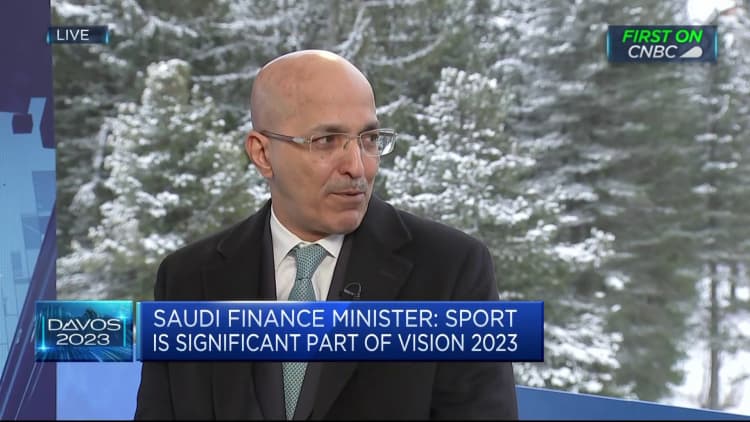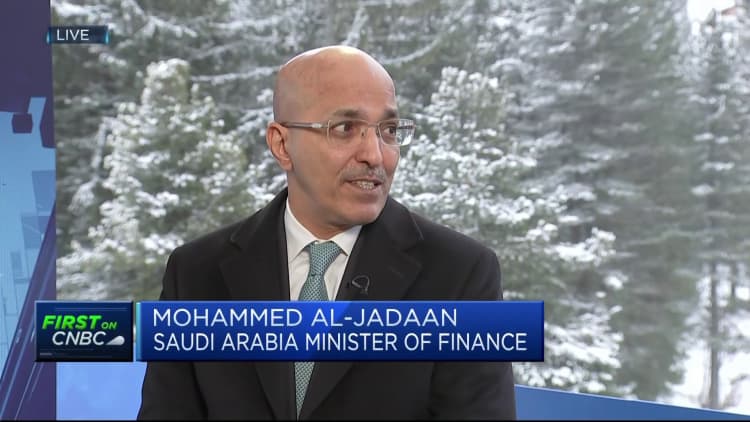
Saudi Arabia can help be a conduit between the U.S. and China at a time of heightened geopolitical tensions, Saudi Finance Minister Mohammed al-Jadaan said Monday at the World Economic Forum in Davos, Switzerland.
The comments came amid questions over what the minister was most worried about in 2023. He called for calm and cooperation, noting his country's ability to maintain an open dialogue with all major political powers amid Russia's war in Ukraine, competition between Washington and Beijing, and a volatile energy market.
"I really think that we need to focus on collaboration, cooperation, avoiding more geopolitical tensions, and calling for calm and political solutions to geopolitical tensions," al-Jadaan told CNBC's Hadley Gamble.
"We made our position very clear on these issues — whether it is in the general assembly in the United Nations or other forums."
Asked about Saudi Arabia's ability to facilitate dialogue between adversarial powers like the U.S. and China, al-Jadaan said: "I would say absolutely yes. We have a very strategic relationship with the U.S., and we have a close relationship with China, and we think we can bridge the gap."
The Saudi kingdom and the United States have a relationship that dates back to the 1930s, and which has been summed up in broad terms as one of oil in exchange for security. The U.S. has military installments in Saudi Arabia, selling advanced weaponry and providing training and joint operations with the Saudi military.
The Biden administration's critical stance toward the kingdom poured some cold water on the nearly century-old relationship of late, with Saudi Arabia subsequently refusing to pump more oil for the global market to balance out the loss of Russian supply, despite pleas from the White House. The loss of Russian oil and gas to Western markets comes from sanctions imposed by the U.S. and EU over Moscow's full-scale invasion of Ukraine.

China, meanwhile, has for years been making inroads — especially economically — as Saudi Arabia's top trading partner and the largest buyer of its oil. Riyadh's relationship with Beijing is more functional and economic than strategic, meaning it is not likely to supplant the U.S.'s role in the kingdom anytime soon.
However, Saudi Arabia in recent years has been buying more Chinese weapons, in particular the ones that Washington has been less than willing to sell its Gulf ally, like lethal drones. Technology transfers and Chinese infrastructure projects are also growing in the kingdom, as Saudi Crown Prince Mohammed bin Salman seeks to diversify his country's alliances and make it more independent.
Chinese President Xi Jinping visited Saudi Arabia in December, and the two countries signed a strategic partnership agreement that the Chinese foreign ministry at the time called "an epoch-making milestone in the history of China-Arab relations."






